Two Conversations with Bruce Duffie
[With guest participation of
Conductor Robert Frisbie
in the first conversation]
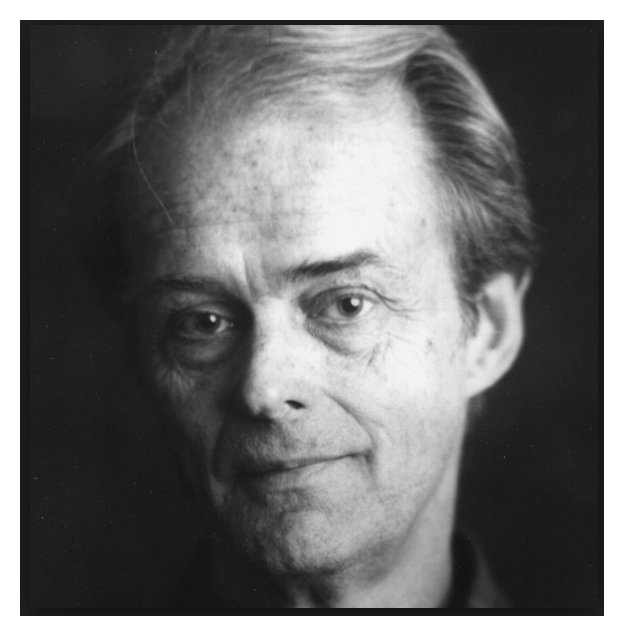

Lee Hoiby (February 17, 1926 – March 28, 2011) was born in Wisconsin of Scandinavian extraction. His maternal grandfather was a violinist and teacher who emigrated from Denmark. His aunts comprised a touring all-girl saxophone band, and like Brahms, he was forced by his father to entertain in alcoholic dives. Important European musicians in flight from Hitler gathered at the war-time music department of the University of Wisconsin at Madison. Among them were performers like the Pro Arte Quartet, led by Arnold Schoenberg’s son-in-law Rudolph Kolisch, from whom Hoiby learned the highest levels of European musicianship. They also introduced him to the dodecaphony of Schoenberg and Webern, which he rejected. Also on the scene at the Madison campus was the eccentric American composer Harry Partch. Hoiby had great fun as a kithara virtuoso in Partch’s ensemble of garage-made instruments, but showed no inclination to include experimental scales and moanings in his personal vocabulary. At Madison, Hoiby’s prodigious pianistic gift was nurtured by Gunnar Johansen, the Danish virtuoso who recorded the complete keyboard works of Bach, Liszt and Busoni. Johansen passed Hoiby on to his own pianistic mentor, the Busoni acolyte Egon Petri, with whom he studied at Cornell and Mills College. On the verge of a career as a concert pianist Hoiby was offered, on the basis of a few works written for fun and submitted without his knowledge, a full scholarship to study composition with Gian Carlo Menotti at the Curtis Institute in Philadelphia. Menotti subjected Hoiby to two years of strict Palestrina counterpoint, and then infected him with operatic ambitions. He worked closely with Menotti as assistant during the period of the The Consul, The Saint of Bleecker Street, and The Medium. The effectiveness of Hoiby’s 1957 one-act opera The Scarf was noted at the first Italian Spoleto Festival, and it was produced at the New York City Opera the following season. Hoiby’s next opera, Natalia Petrovna (NYCO, 1964; revised version, A Month in the Country, 1980) was praised by the distinguished Washington critic Paul Hume, particularly the closing octet ("of overwhelming beauty, a supreme moment in opera") that he classed with the Rosenkavalier trio and the Meistersinger quintet. Another important critical voice, Irving Lowens, Music Librarian of the Library of Congress, wrote of “the clean simplicity, the beautiful eloquence of the vocal lines. There is no question about this lyric gift; his melodies are more compelling by far than those of his teacher Menotti.” Most telling was a later consideration by Frank Merkling, editor of Opera News. "Indulging in neither breast-beating nor serial cerebration" the opera was “curiously novel for its very lack of chic; it simply went about the business of fulfilling all the functions of an opera successfully." Hoiby's 1971 setting of Tennessee Williams's Summer and Smoke (with libretto by Lanford Wilson) was declared "the finest American opera to date" by Harriet Johnson of the New York Post. Still, the mid-twentieth century prejudice against tonality and lyricism, combined with Hoiby's own professional and social independence, worked against widespread recognition. In 1981 Peter Davis wrote of a new production of Summer and Smoke in New York Magazine that "Perhaps ten years ago, music of this sort, unabashedly drenched in ardent melody, was considered something of an embarrassment. Today such an attitude seems childish and irrelevant." Hoiby continued to pursue lyric opportunities with his 1986 setting of Shakespeare's final play, The Tempest, (for the Des Moines Metro Opera) of which Opera Magazine (London) wrote that it was "redolent of Das Rheingold and Richard Strauss, but even so was melodically, harmonically, and musically, pure Hoiby," while the Christian Science Monitor found it "superbly singable and downright beautiful". He also completed a lavish three-act setting of Romeo and Juliet. Other operatic works by Mr. Hoiby include the one-act comedy Something New for the Zoo (1979); the musical monologues The Italian Lesson (1981, text by Ruth Draper) and Bon Appetit! (1985, text by Julia Child) which together ran off-Broadway and toured nationally with Jean Stapleton in the late 1980s, and a one-act chamber opera, This Is the Rill Speaking (1992, on the play by Lanford Wilson). Later vocal chamber works include a music-theater piece on texts of Virginia Woolf, What Is the Light? written for Claire Bloom and the 92nd Street Y; Rain Forest for voice, wind quintet and piano, on prose poems of Elizabeth Bishop for the Santa Fe Chamber Music Festival; and Sonnets and Soliloquies, a group of Shakespeare settings for soprano Jennifer Foster and the Miro String Quartet. Also of note among his larger compositions for the voice is his 1991 setting of Martin Luther King, Jr.’s I Have a Dream for baritone and orchestra, which has had memorable performances by baritone William Stone and bass-baritone Simon Estes. Hoiby's immense contribution to the song repertoire is recognized by American singers everywhere. His style is an elegant and unobvious bridging of the lyrical worlds of Verdi and Gershwin, which can be profoundly moving or smoothly good-humored, but skirts entirely the modernist obsession with “originality”. He turns frequently to texts of great literary and civic value. His exemplary performer has been the great American soprano Leontyne Price, who, from 1964 until her retirement in 1996, introduced many of his best known poem settings and arias to the public, including “The Serpent” of Roethke, “Be Not Afeard” (from The Tempest), the Dickinson songs, the “Evening” of Wallace Stevens, “Lady of the Harbor” and “Where the Music Comes From.” Hoiby has also made significant contributions to the piano repertory (in addition to his demanding song accompaniments), including two piano concertos and a volume of solo piano works published by G. Schirmer. His choral music is performed in churches throughout the USA and in Great Britain. Indeed, some of his most substantial works are for chorus, including the Christmas cantata A Hymn of the Nativity (text by Richard Crashaw), the oratorio Galileo Galilei (libretto by Barrie Stavis), and an accrual of works for voice, chorus and orchestra on texts of Walt Whitman which have been gathered into a full evening’s program called A Whitman Service. He has written chamber music in numerous combinations, including sonatas for violin, ‘cello, a concerto for flute and chamber orchestra (“Pastoral Dances”), and Dark Rosaleen (Rhapsody on a theme by James Joyce) recorded by the Ames Piano Quartet and released by Albany (shown above). Later works include Trio for the Verdehrs for violin, clarinet and piano, and Last Letter Home for the male vocal ensemble Cantus. His three-movement Summer Suite for Wind Ensemble was premiered on February 25, 2008 by the Austin Peay State University Wind Ensemble under the direction of Dr. Gregory Wolynec. |
| Robert Frisbie, 55, a conductor
who served as music director and sole conductor of Chicago Opera Theater
from 1974 to 1981, died last week at his home in Lake Forest. He was an important
figure in the opera theater's early seasons. A former assistant to conductors
Margaret Hillis,
Giuseppe Patane and Herbert Blomstedt,
Frisbie founded and conducted the Chicago-based American Chamber Symphony
during the 1980s. John von Rhein, Chicago Tribune, July 25, 1996
|
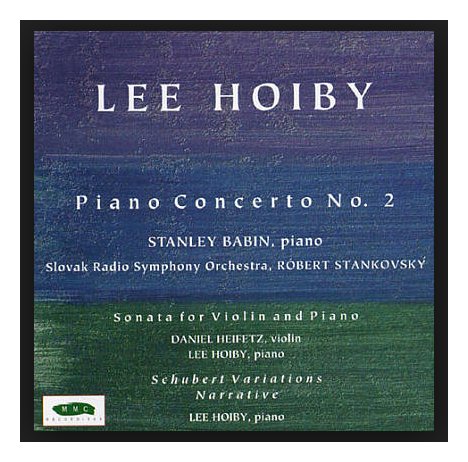 BD: Are there more piano concertos in your plans?
BD: Are there more piano concertos in your plans?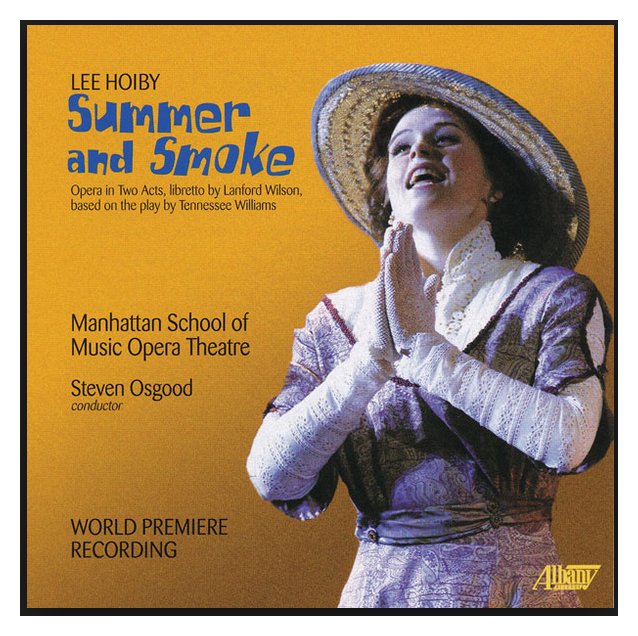 Frisbie: We had an interesting experience for
Lee the last night of the opera because we made several little cuts in the
opera in order to produce it for television. They were little things,
just snippets here and there, which Lee recommended for the television because
it was a bit too long. We had to take out about twelve minutes, and
he remarked afterwards that it was a series of surprises all night long because
the opera would have these little cuts. He’d approved them but he’d
never heard them!
Frisbie: We had an interesting experience for
Lee the last night of the opera because we made several little cuts in the
opera in order to produce it for television. They were little things,
just snippets here and there, which Lee recommended for the television because
it was a bit too long. We had to take out about twelve minutes, and
he remarked afterwards that it was a series of surprises all night long because
the opera would have these little cuts. He’d approved them but he’d
never heard them! 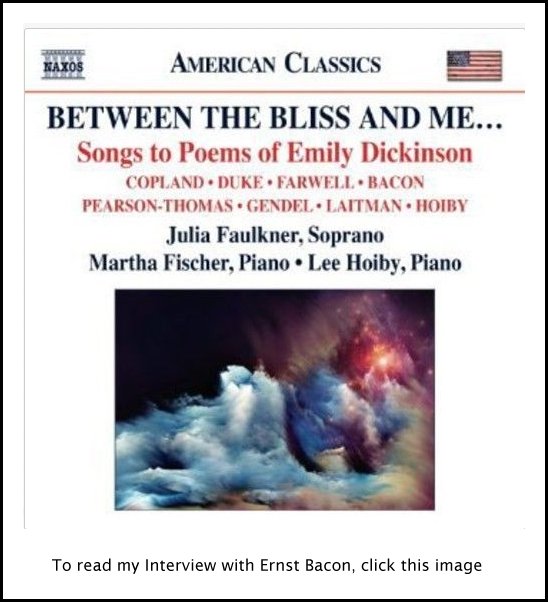 LH: Yes! I have spent most of my composing
years writing operas because it takes so long. Summer and Smoke was four years, Natalia was four years, and a concerto
is only six months. But I worked every bit as hard on the concerto
as any opera. When you write operas you have to attune yourself to a
story, mainly the words which give you the feel we have which are very poetical
and very beautiful, like in Summer and
Smoke.
LH: Yes! I have spent most of my composing
years writing operas because it takes so long. Summer and Smoke was four years, Natalia was four years, and a concerto
is only six months. But I worked every bit as hard on the concerto
as any opera. When you write operas you have to attune yourself to a
story, mainly the words which give you the feel we have which are very poetical
and very beautiful, like in Summer and
Smoke.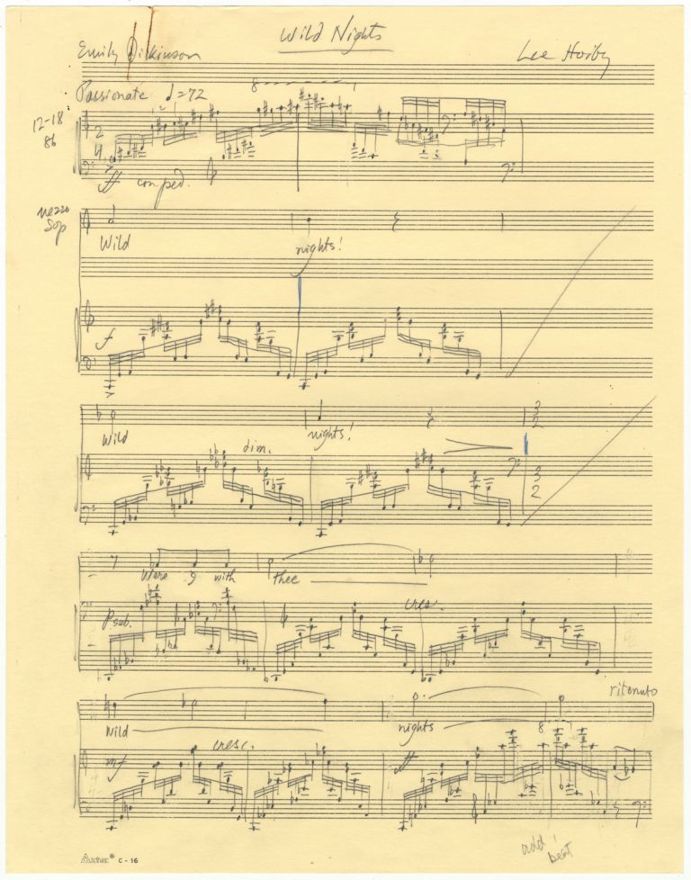 LH: There aren’t terribly many, but that shouldn’t
discourage anybody. As an Italian said to me once, “Look
how many operas they had to produce in Italy before they came across Puccini.”
They just knew and understood that they would be fine. You don’t
expect to hit every time...
LH: There aren’t terribly many, but that shouldn’t
discourage anybody. As an Italian said to me once, “Look
how many operas they had to produce in Italy before they came across Puccini.”
They just knew and understood that they would be fine. You don’t
expect to hit every time...Kirk Browning (March 28, 1921
– February 10, 2008) was an American television director and producer who
had hundreds of productions to his credit, including 185 broadcasts of Live from Lincoln Center.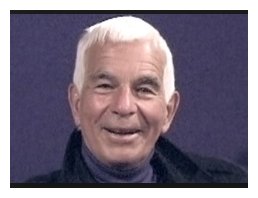 Born in New York City, Browning dropped out of Cornell University after
attending for only one month and moved to Waco, Texas, where he was hired
as a newspaper reporter. Because of a childhood injury, he was rejected
by the United States Army when he tried to enlist during World War II, so
he worked as an ambulance driver in England and France. In the late 1940s,
he was a chicken farmer operating an egg route in Ridgefield, Connecticut
when one of his customers offered him a job in the music library at NBC.
The clerical position led to his directing live televised performances by
the NBC Symphony Orchestra conducted by Arturo Toscanini. Soon after he
was made a stage manager of the network's newly formed opera company, and
he later became its Director. His productions included Carmen, The Barber
of Seville, Billy Budd
(with Theodor Uppman),
Trouble in Tahiti by
Bernstein, Pelléas and Mélisande,
Salome, Abduction from the Seraglio (with David Lloyd as Pedrillo),
Tosca (with Leontyne Price),
Madama Butterfly, Griffelkin by Lukas Foss, The Magic Flute
(with Price), Rigoletto, The Trial at Rouen by Norman Dello Joio,
La Bohème, Così Fan Tutte (with
Phyllis Curtin),
Fidelio, Don Giovanni (with Cesare Siepi and Price),
Boris Godounov (with Giorgio Tozzi), The Love of Three Kings by Italo Montemizzi
(with Curtin and Tozzi), Lucia di Lammermoor,
War and Peace by Serge Prokofiev,
Dialogues of the Carmelites
(with Price), Deseret by Leonard Kastle, and the
following four operas by Gian Carlo Menotti: Amahl and the Night Visitors (premiere
of the first opera written specifically for television), The Saint of Bleeker Street, Maria Golovin, and Labrynth, which was written for TV and
included effects not available in the live theater. For the NET Opera his
productions included My Heart's in the
Highlands by Jack
Beeson, The Trial of Mary Lincoln
by Thomas Pasatieri, and Rachel, La Cubana
by Hans Werner Henze.
Born in New York City, Browning dropped out of Cornell University after
attending for only one month and moved to Waco, Texas, where he was hired
as a newspaper reporter. Because of a childhood injury, he was rejected
by the United States Army when he tried to enlist during World War II, so
he worked as an ambulance driver in England and France. In the late 1940s,
he was a chicken farmer operating an egg route in Ridgefield, Connecticut
when one of his customers offered him a job in the music library at NBC.
The clerical position led to his directing live televised performances by
the NBC Symphony Orchestra conducted by Arturo Toscanini. Soon after he
was made a stage manager of the network's newly formed opera company, and
he later became its Director. His productions included Carmen, The Barber
of Seville, Billy Budd
(with Theodor Uppman),
Trouble in Tahiti by
Bernstein, Pelléas and Mélisande,
Salome, Abduction from the Seraglio (with David Lloyd as Pedrillo),
Tosca (with Leontyne Price),
Madama Butterfly, Griffelkin by Lukas Foss, The Magic Flute
(with Price), Rigoletto, The Trial at Rouen by Norman Dello Joio,
La Bohème, Così Fan Tutte (with
Phyllis Curtin),
Fidelio, Don Giovanni (with Cesare Siepi and Price),
Boris Godounov (with Giorgio Tozzi), The Love of Three Kings by Italo Montemizzi
(with Curtin and Tozzi), Lucia di Lammermoor,
War and Peace by Serge Prokofiev,
Dialogues of the Carmelites
(with Price), Deseret by Leonard Kastle, and the
following four operas by Gian Carlo Menotti: Amahl and the Night Visitors (premiere
of the first opera written specifically for television), The Saint of Bleeker Street, Maria Golovin, and Labrynth, which was written for TV and
included effects not available in the live theater. For the NET Opera his
productions included My Heart's in the
Highlands by Jack
Beeson, The Trial of Mary Lincoln
by Thomas Pasatieri, and Rachel, La Cubana
by Hans Werner Henze.Among Browning's other credits are Frank Sinatra's first special in 1957; numerous Hallmark Hall of Fame productions between 1951 and 1958; Live from the Met and Great Performances for PBS; and television adaptations of plays such as June Moon, Damn Yankees!, A Touch of the Poet, The Taming of the Shrew, The Time of Your Life, Tartuffe, Fifth of July, You Can't Take it with You, The House of Blue Leaves, Our Town, and Death of a Salesman, which earned him a nomination for the Directors Guild of America Award for Outstanding Directing - Television Film. Browning won two Primetime Emmy Awards, one for directing a 1987 special with Plácido Domingo and the other for his 1988 production of Turandot, both broadcast by PBS, and two Daytime Emmy Awards, for The CBS Festival of Lively Arts for Young People in 1973 and La Gioconda in 1979. He also received two Christopher Awards and a Peabody Award. |
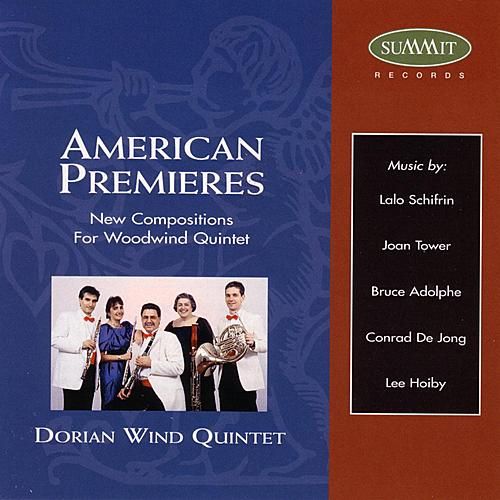 Frisbie:
Thank you, Bruce!
Frisbie:
Thank you, Bruce!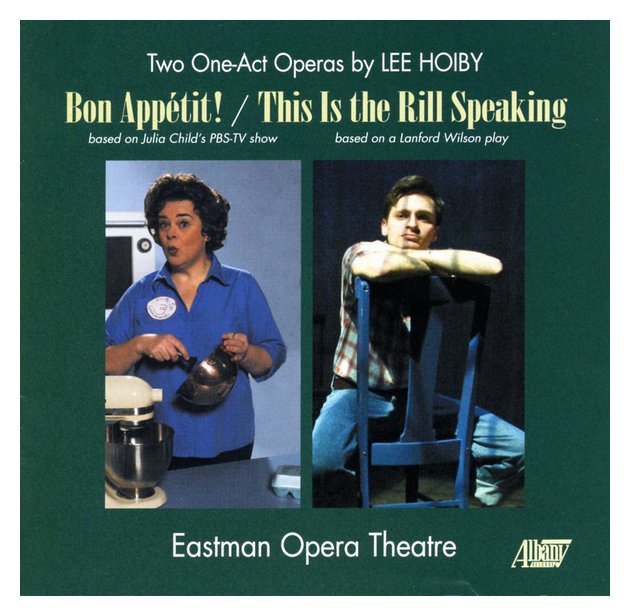 BD: I hope they all get done. Bring your
chamber opera, and do that for us! Have you written another one-act?
BD: I hope they all get done. Bring your
chamber opera, and do that for us! Have you written another one-act?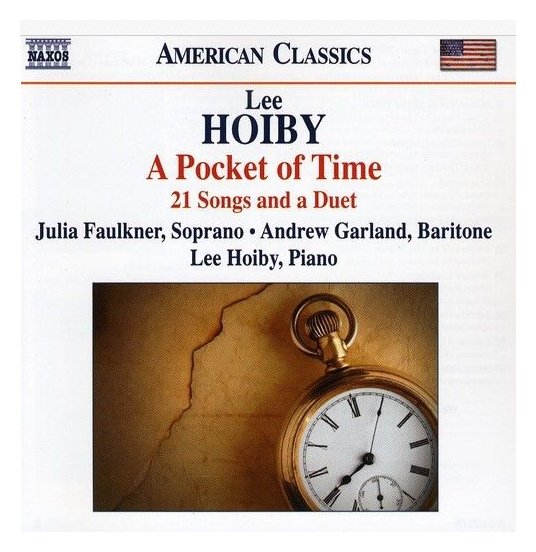 BD:
All this time when people weren’t listening to tonal music, for whom were
you writing?
BD:
All this time when people weren’t listening to tonal music, for whom were
you writing?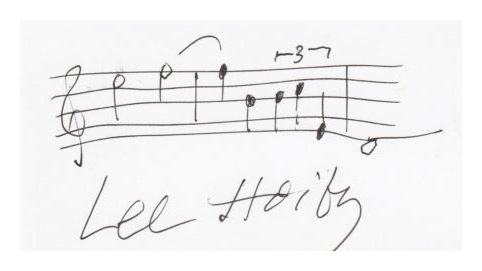 LH: [Laughs] No, no. I realize it’s
my own responsibility, and there’s nothing I can do about it. But I
don’t feel too bad about it because I had already learned to play the Chopin
B Minor Sonata one way, when one
day I picked up an edition of it and there were changes in it. He
was a reviser, too. Most composers have revised their works even after
they’re in print. Certainly all the opera composers did.
LH: [Laughs] No, no. I realize it’s
my own responsibility, and there’s nothing I can do about it. But I
don’t feel too bad about it because I had already learned to play the Chopin
B Minor Sonata one way, when one
day I picked up an edition of it and there were changes in it. He
was a reviser, too. Most composers have revised their works even after
they’re in print. Certainly all the opera composers did.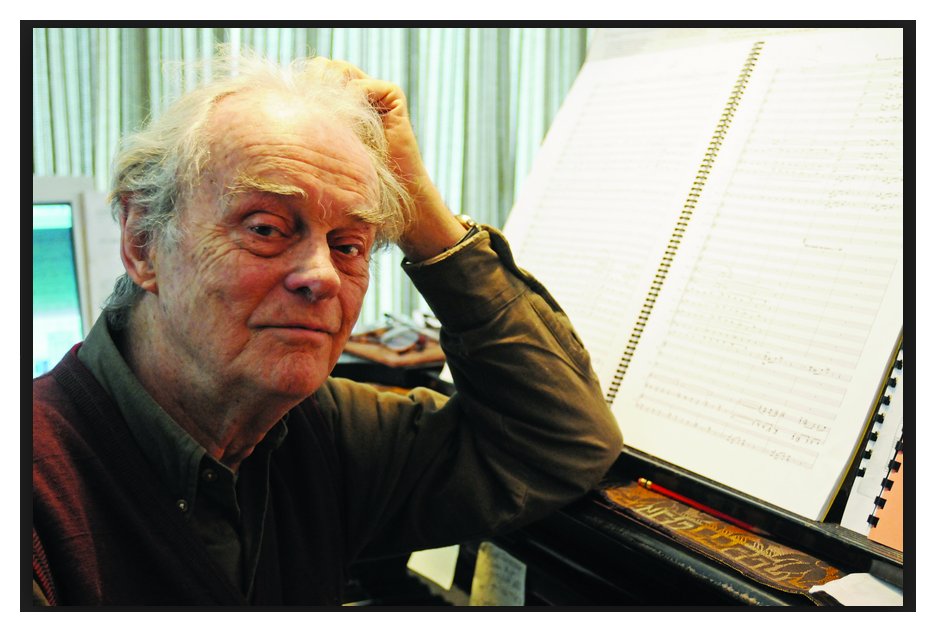
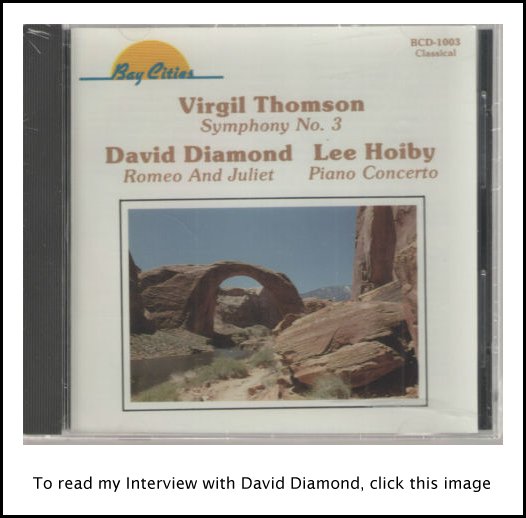 LH: I’m only really limited by my own experience,
and I know what helped me, and I would never know how to do what I do if
I hadn’t had a very deep and prolonged training in Renaissance counterpoint.
I don’t mean Bach counterpoint, which is quite a different thing and is much
easier to do, but Palestrina counterpoint which is what I was taught at
the Curtis Institute. I spent two whole years doing nothing but counterpoint,
building up a strength of understanding of the individual lines, which gives
you a kind of a freedom.
LH: I’m only really limited by my own experience,
and I know what helped me, and I would never know how to do what I do if
I hadn’t had a very deep and prolonged training in Renaissance counterpoint.
I don’t mean Bach counterpoint, which is quite a different thing and is much
easier to do, but Palestrina counterpoint which is what I was taught at
the Curtis Institute. I spent two whole years doing nothing but counterpoint,
building up a strength of understanding of the individual lines, which gives
you a kind of a freedom.
© 1980 & 1991 Bruce Duffie
These conversations were recorded in Chicago on June 4, 1980, and April 10, 1991. Portions were broadcast on WNIB several times in the following years, and on WNUR in 2007. Copies of the unedited audio were placed in the Archive of Contemporary Music at Northwestern University, and the Oral History of American Music archive at Yale University. The transcriptions were made in 2016, and posted on this website at that time. My thanks to British soprano Una Barry for her help in preparing this website presentation.
To see a full list (with links) of interviews which have been transcribed and posted on this website, click here. To read my thoughts on editing these interviews for print, as well as a few other interesting observations, click here.
Award - winning broadcaster Bruce Duffie was with WNIB, Classical 97 in Chicago from 1975 until its final moment as a classical station in February of 2001. His interviews have also appeared in various magazines and journals since 1980, and he now continues his broadcast series on WNUR-FM, as well as on Contemporary Classical Internet Radio.
You are invited to visit his website for more information about his work, including selected transcripts of other interviews, plus a full list of his guests. He would also like to call your attention to the photos and information about his grandfather, who was a pioneer in the automotive field more than a century ago. You may also send him E-Mail with comments, questions and suggestions.